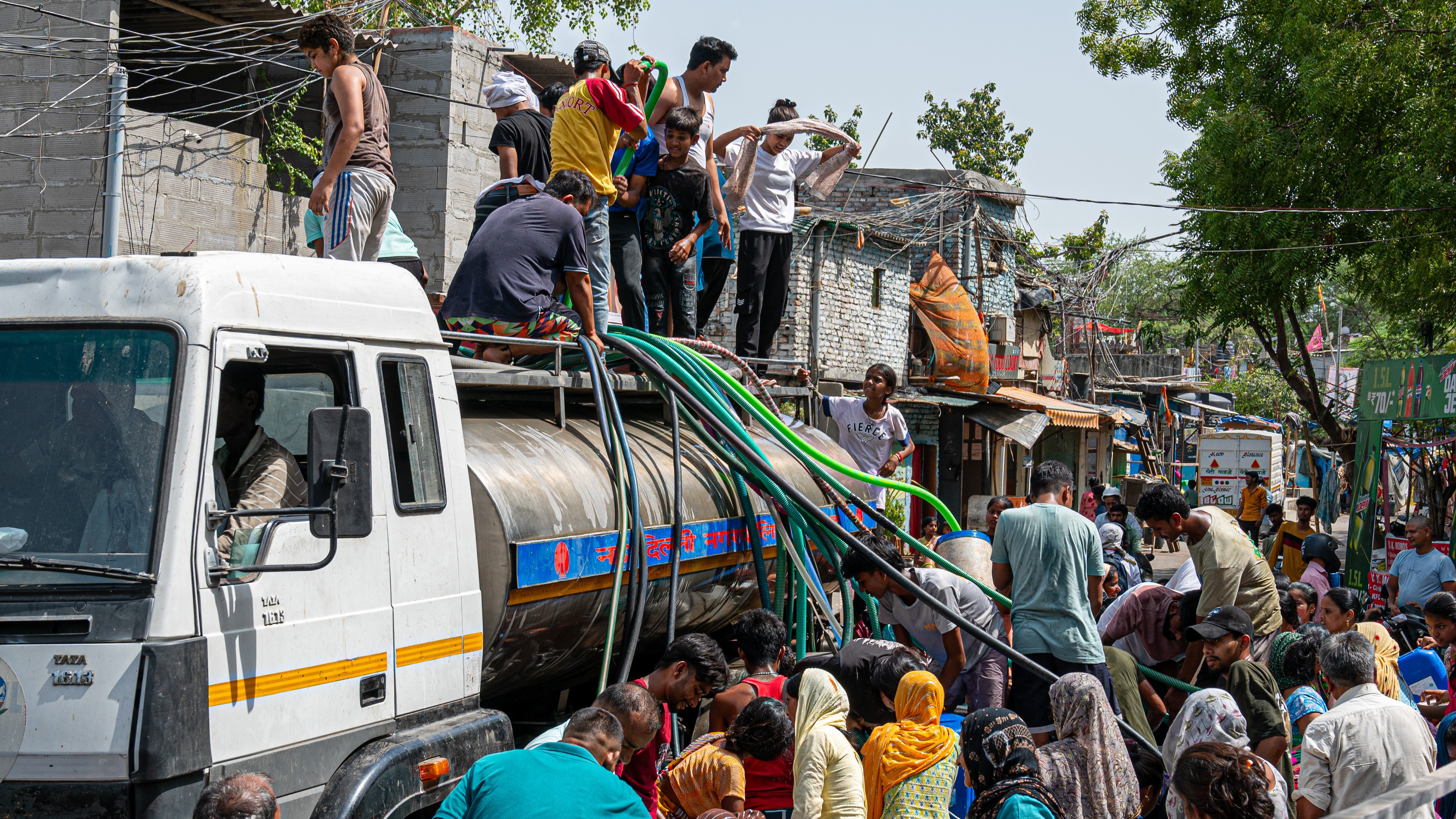'Precipitation, the source of all fresh water, can no longer be relied upon': Global water cycle pushed out of balance 'for 1st time in human history'
Climate change and chronic water mismanagement are placing "unprecedented stress" on the world's water systems, according to a new report.

More than half of the world's food production is at risk of collapsing in the next 25 years due to a growing global water crisis, a new report warns.
Climate change, destructive land use and the consistent mismanagement of water resources mean that nearly 3 billion people and over half of global food production are in areas facing "unprecedented stress" on their water systems, the Global Commission on the Economics of Water said in a report released Oct. 17.
If the trend is not reversed, the growing deficit will have a seismic impact on humanity and the environment. Several cities are already sinking due to a loss of groundwater. Moreover, up to 8% of the global gross domestic product (GDP), and 15% of the GDP of lower-income countries, will be lost by 2050, according to the report.
"Today, half of the world's population faces water scarcity," Johan Rockström, director of the Potsdam Institute for Climate Impact Research (PIK) and one of the commission's four co-chairs, said in a statement. "As this vital resource becomes increasingly scarce, food security and human development are at risk — and we are allowing this to happen.”
"For the first time in human history, we are pushing the global water cycle out of balance," he continued. "Precipitation, the source of all freshwater, can no longer be relied upon due to human caused climate and land use change, undermining the basis for human wellbeing and the global economy."
Related: Will the US run out of water?
Each person needs a bare minimum of 13 to 26 gallons (50 to 100 liters) of water a day for their health and hygiene, but the commission found that this number, which governments often rely on, is a vast underestimate.
Sign up for the Live Science daily newsletter now
Get the world’s most fascinating discoveries delivered straight to your inbox.
The real number for adequate consumption and a dignified life is closer to 1,055 gallons (4,000 liters) per person each day, the report authors wrote. This volume is unobtainable in many parts of the world, placing additional pressure on trade to provide adequate food, clothing and consumer goods.
Current approaches to the water crisis focus predominantly on the "blue water" found in rivers, lakes and aquifers, while overlooking the vital "green water" contained in soil and plants. This water cycles around the world in atmospheric rivers to generate roughly half of the rainfall that falls on land.
Areas in India, China, Russia and Europe are highly dependent on green water flow, placing them under ever greater threat of water scarcity as weather systems are disrupted. In recent years, the Amazon has undergone severe droughts that threaten to transform the rainforest into savanna, glaciers have melted at unprecedented speeds, and Europe has suffered deadly flooding. A previous study has also highlighted the dangers in North America, with nearly half of the United States' 204 freshwater basins projected to fall beneath demand by 2071.
Compounding the issue is the widespread underpricing of water in many areas. This enables water use in already-stressed regions to be diverted to rapidly growing data centers and coal-fired power plants. By introducing proper pricing and subsidies, shifting to plant-based diets, restoring natural habitats and recycling wastewater, the researchers argue that water can be distributed more efficiently and equitably.
"The global water crisis is a tragedy but is also an opportunity to transform the economics of water — and to start by valuing water properly so as to recognize its scarcity and the many benefits it delivers," Ngozi Okonjo-Iweala, director general of the World Trade Organization and a co-chair of the commission, said in the statement.
The Global Commission on the Economics of Water was established by the Netherlands in 2022, using the expertise of dozens of scientists and economists to create a 202-page report assessing all aspects of the current crisis and suggesting solutions for politicians.

Ben Turner is a U.K. based staff writer at Live Science. He covers physics and astronomy, among other topics like tech and climate change. He graduated from University College London with a degree in particle physics before training as a journalist. When he's not writing, Ben enjoys reading literature, playing the guitar and embarrassing himself with chess.









